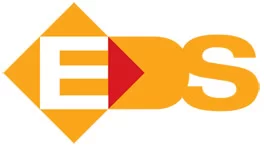How to Handle Supply Chain Disruptions in a Global Market
In today’s interconnected world, supply chain disruptions are no longer isolated events—they are global challenges that can ripple across industries. From pandemics and geopolitical tensions to natural disasters and tariff hikes, disruptions are becoming more frequent and impactful. To remain competitive, businesses must be prepared to respond swiftly and strategically.
Understanding the Impact of Disruptions
Disruptions in the global supply chain can manifest in many ways—delayed shipments, raw material shortages, inflated costs, and even halted production. Recent events like the COVID-19 pandemic, the Russia-Ukraine conflict, and U.S. tariff shifts under new political leadership have exposed the vulnerabilities in traditional supply chain models.
For example, tariff changes announced in 2025 are already reshaping sourcing strategies across multiple sectors, including automotive, electronics, and pharmaceuticals. Companies relying on single-source suppliers or high-risk regions are particularly exposed.
Strategies for Managing Supply Chain Disruptions
1. Diversify Your Supplier Base
Relying on a single supplier or country can increase your vulnerability to disruptions. Instead, consider adopting a diversified sourcing strategy that spreads risk across multiple geographies. Countries like India, Vietnam, and Mexico are emerging as strong alternatives to China due to their growing manufacturing capabilities and more favorable trade relations.
2. Build Strong Supplier Relationships
Strong communication and collaboration with suppliers can help anticipate challenges before they escalate. By fostering strategic supplier partnerships, companies can gain more transparency, prioritize production during high-demand periods, and align on contingency planning.
3. Invest in Supply Chain Visibility
Technology plays a critical role in disruption management. Advanced tools like AI, IoT, and blockchain can improve supply chain visibility and provide real-time updates on inventory, logistics, and supplier performance. According to Supply Chain Dive, more companies are investing in these tools to increase agility and responsiveness.
4. Strengthen Risk Assessment Protocols
Proactive risk assessment should be an integral part of your procurement strategy. Conduct regular audits of suppliers, monitor geopolitical developments, and evaluate the financial health of critical vendors. Create a tiered risk model to prioritize and act based on exposure level.
5. Implement Agile Logistics and Inventory Models
Leaning too heavily on just-in-time inventory can backfire during global disruptions. Instead, build buffer stocks for critical components and consider a hybrid model that combines JIT with just-in-case strategies. Collaborate with logistics partners who can offer flexible shipping routes and warehousing options.
6. Stay Informed on Trade and Regulatory Changes
Governments worldwide are continuously altering trade policies, tariffs, and compliance rules. Being aware of these changes helps avoid costly delays or legal penalties. Resources like the World Trade Organization and U.S. Trade Representative provide timely updates.
Future-Proofing Your Supply Chain
As supply chain disruptions become more frequent, businesses must shift from reactive to proactive strategies. This includes embracing digital transformation, building strategic partnerships, and designing a more resilient and adaptive supply network.
Companies that take these steps now will be better positioned to absorb shocks, maintain customer trust, and gain competitive advantages—even in uncertain times.
Why EDS International Is Your Ideal Partner
At EDS International, we specialize in helping businesses navigate supply chain complexity with confidence. With over 40 years of experience in supplier vetting, risk management, and global sourcing, we offer tailored solutions that help our clients reduce exposure and maintain operational continuity.
Our presence in key sourcing regions like India, Vietnam, Mexico, and Thailand, combined with our deep market knowledge, makes us the ideal partner for companies looking to build resilient, cost-effective, and agile supply chains.
Contact us today to learn how EDS can help you stay ahead of disruptions and thrive in a volatile global market.








